
20 minute read
Trends

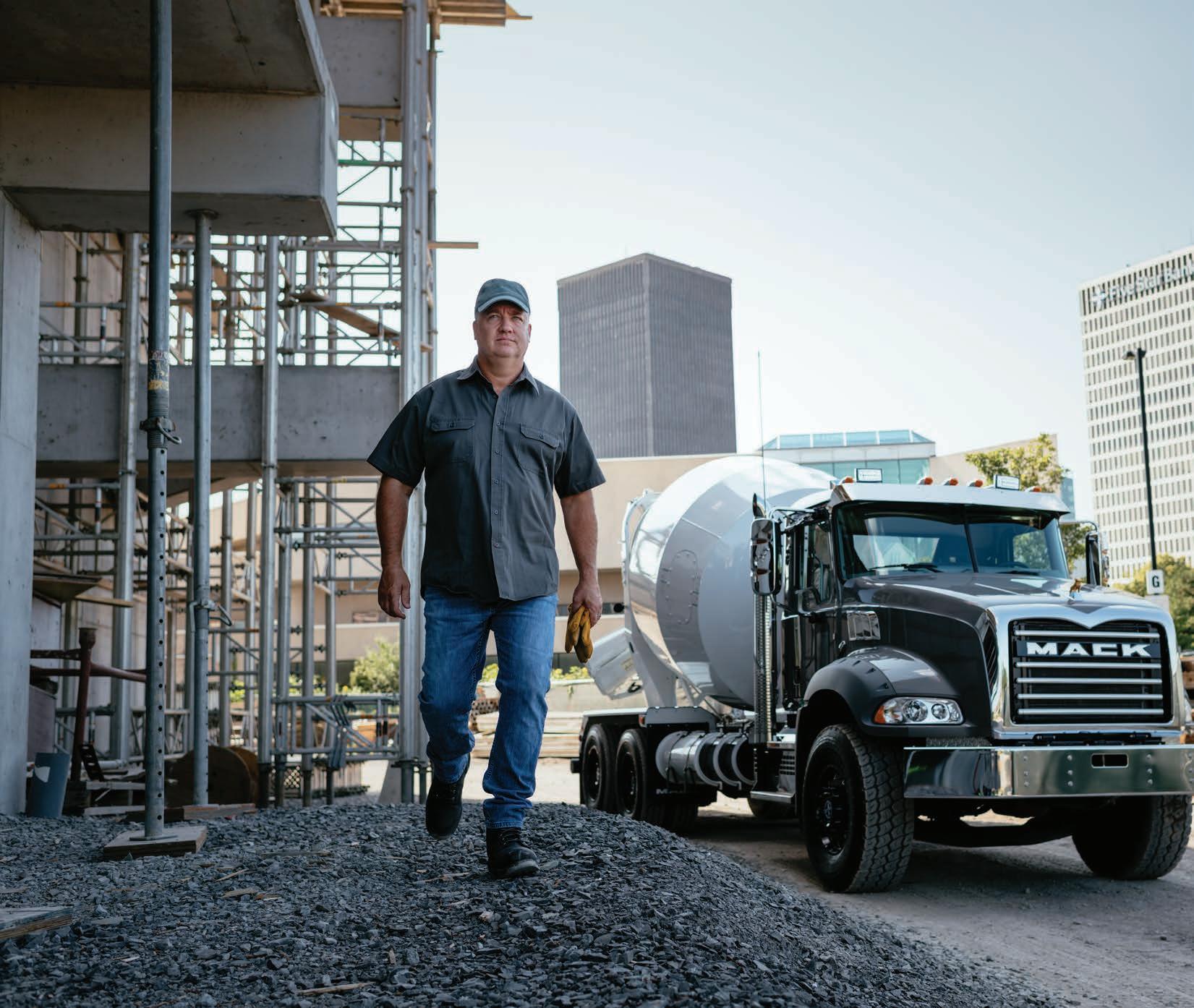

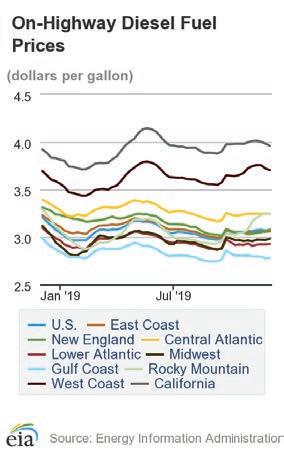
+ 8,000 trucking jobs in October and November
The for-hire trucking industry
added 1,100 jobs in November and the Department of Labor’s revised October fi gures show a 6,800-job gain.

Diesel prices up slightly in third quarter; down from one year ago
Average on-highway diesel fuel prices in the United States increased slightly during the third quarter of 2019 from $3.032 on Aug. 5 to $3.062 on Nov. 4. The average price on Nov. 11, 2019, of $3.073 is down $0.244 compared to the same date in 2018.

Source: U.S. Energy Information Administration

10% of detention periods last six hours or longer
Detention time at shipper/receiver facilities and frequency of detention have increased since 2014, a report by the American Transportation Research Institute found. Drivers reported nearly 10% of detention periods last six hours or longer. Reefer haulers wait the most, with more than a third of their detention periods lasting four or more hours.
178 million daily crossings of more than 47,000 defi cient bridges
Vehicles cross more than 47,000 structurally defi cient U.S. bridges 178 million times a day, according to an American Road & Transportation Builders Association report. “We are no longer facing a future highway maintenance crisis — we’re living it — and every day we fail to invest, we’re putting more lives at risk,” said Chris Spear, American Trucking Associations president and CEO.
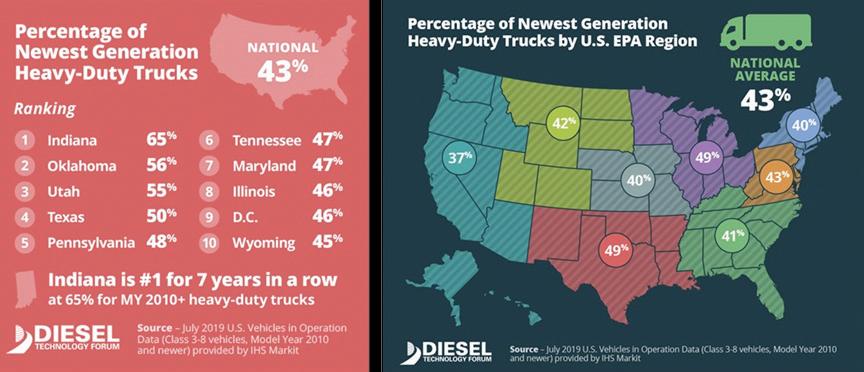
43% of commercial vehicles using low-emissions technology
More than 40% of America’s truck fl eet is powered by post-2010 emissions technology, which includes exhaust aftertreatment systems, according to the Diesel Technology Forum. This represents a 6.8% increase from one year ago.
Truck tonnage index up 4.5%
American Trucking Associations’
seasonally adjusted For-Hire Truck Tonnage Index increased 4.5% in the third quarter of 2019 compared to the third quarter of 2018. The September 2019 index was up 3.5% compared to the September 2018 index. In October, the index was up 4.1% yearto-date compared with the same period in 2018.





Tough tank trucking
Florida Rock & Tank Lines relies on Mack Anthem® to meet its mission
Story by Carolyn Mason Photos by Kirk Zutell and FRTL


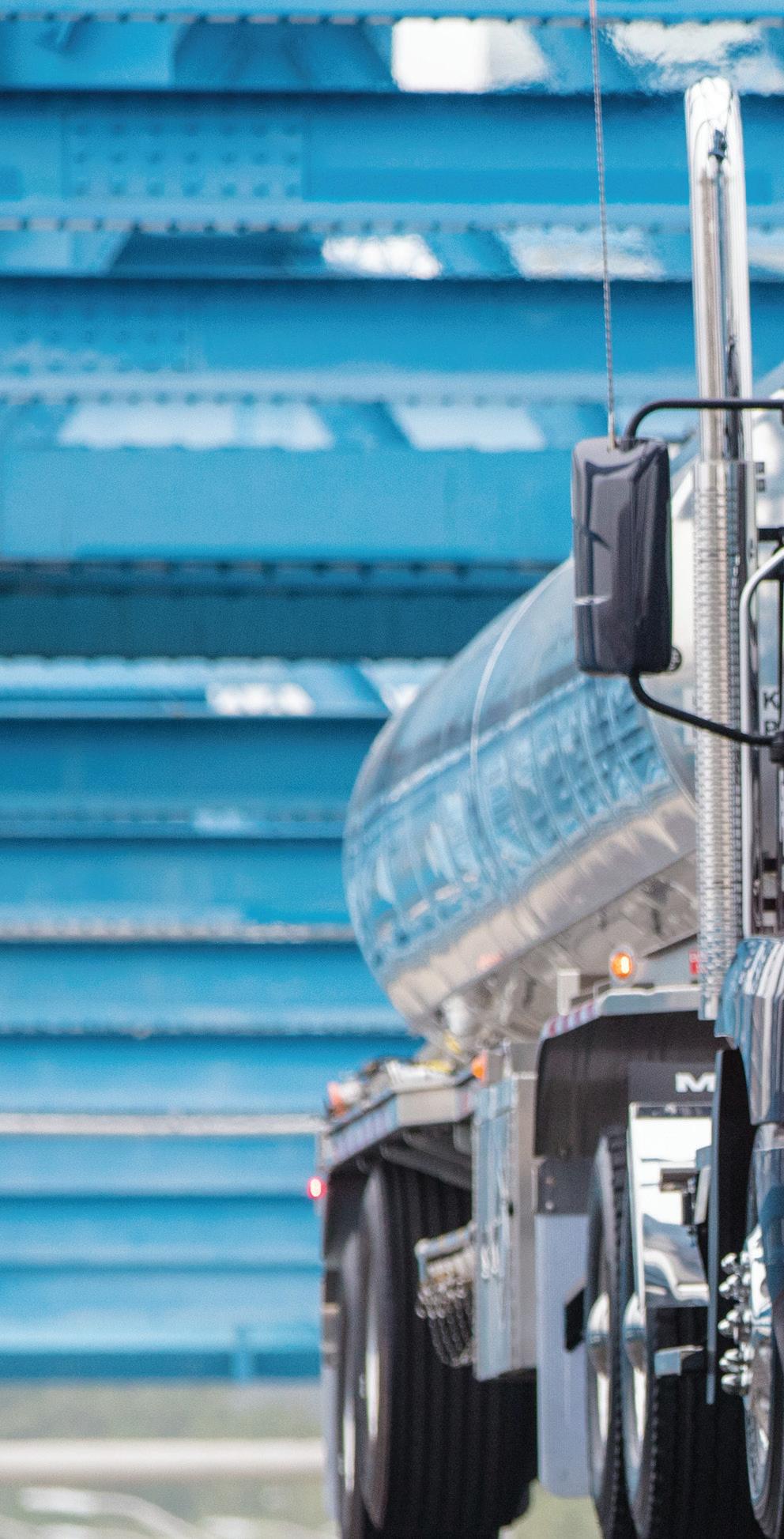






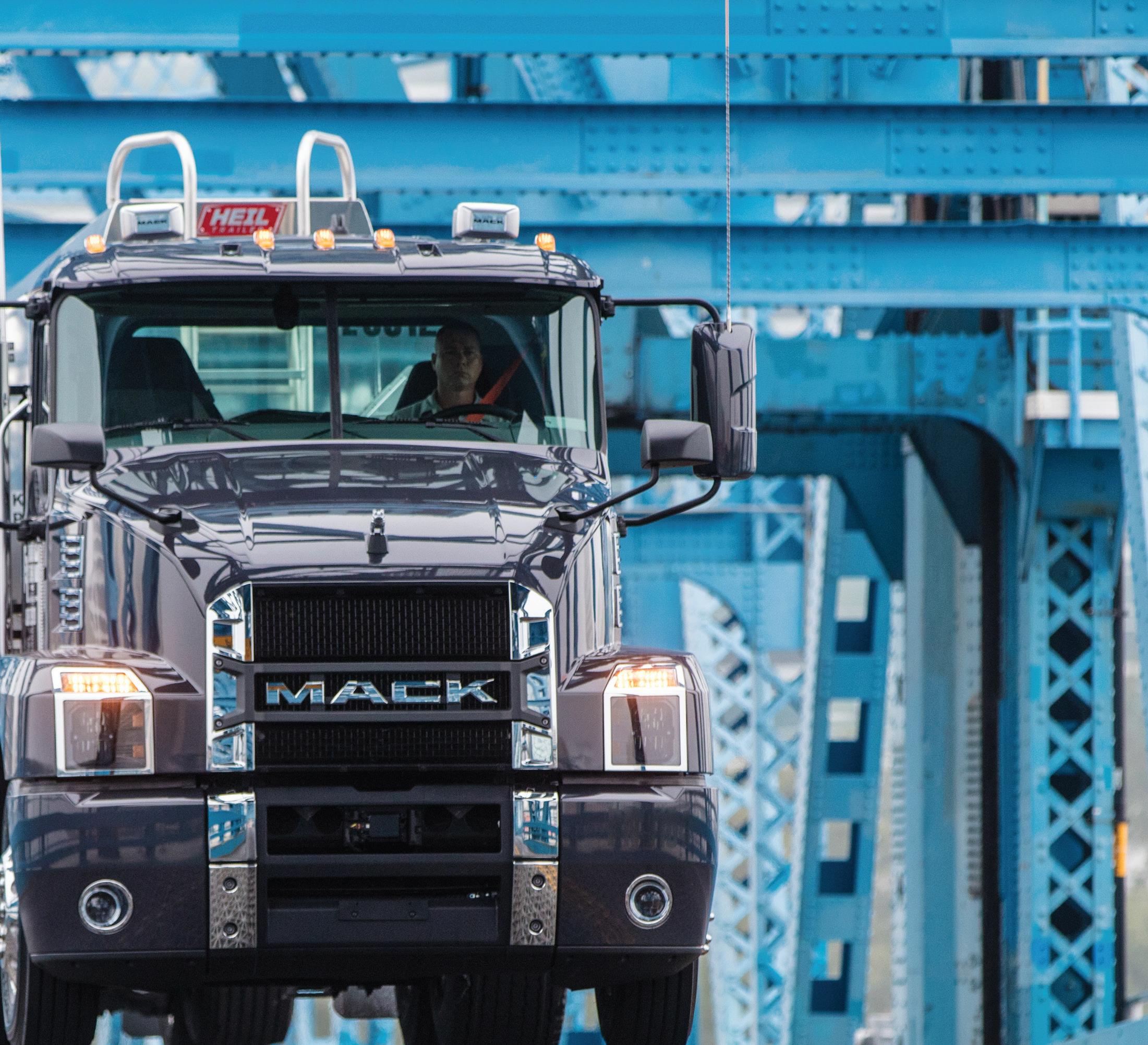

Florida Rock & Tank Lines in Jacksonville, Florida, doesn’t transport rock anymore — the fl eet is known now as an industry leader for transporting mostly petroleum and other liquid and dry bulk commodities in tank trucks throughout the Southeastern United States.
Even though among drivers and customers it’s still referred to as “Florida Rock,” the company has evolved from its original role in the early 1960s as a private aggregate and sand hauler to its present as a publicly traded (NASDAQ-PATI) petroleum, liquid and dry bulk carrier that operates under its parent company, Patriot Transportation Holding Inc.
Robert Sandlin has been president of Florida Rock & Tank Lines since 2003 and CEO of Patriot Transportation Holding company for four years. He has been with the company his entire career, which began in 1984. In fact, many on the executive team have the longevity that contributes to their success in a competitive market. “Our team now includes a good mixture of seasoned leaders and a new group of leaders with industry experience who adhere to our mission: to safely deliver on time and accurately, to never compromise safety and to offer premier customer service,” he says.




Mack Trucks plays an important role in ful- company for 39 years. He says that, just as fi lling the fl eet’s mission. it is for others in the industry, recruiting and The company, with $114 million in revenue, retaining drivers is a constant challenge. currently operates 19 terminals throughout While they experience high turnover, he the Southeast and operates more than 350 says some of it is due to a strong jobs martractors and 500 trailers, employing 530 com- ket. However, he says it’s always a chalpany drivers, 40 drivers in training and 23 lenge to recruit new drivers because of the leased owner- higher level of skills operators. They needed for a hazmat deliver to gas sta- operation. tions, convenience “Operating new “Operating new stores, major retail- equipment like the ers and some truck equipment like the Mack Anthem® does stops. Delivering petroleum products Mack Anthem® does as much for our safety and customer makes up about as much for our safety service as it does to 80% of their busi- attract the drivers ness with 20% dry and customer service we need,” he says. bulk and industrial chemicals. But it’s as it does to attract The fl eet is composed of 80% delivering petroleum the drivers we need.” Mack® trucks, in up to three to four including Pinnacle™ loads per shift in the Jim Anderson, vice president of safety and more than 70 crowded urban and risk management Anthem models. locations where gas “Our customers stations and mini appreciate the safety markets are tucked features and uptime away that requires not only skilled hazmat we get from the equipment, and our drivers operators but also equipment tough enough love the comfort and power.” He says even to maneuver the tight spaces. the drivers initially put off by changing to an The challenge of keeping those seats fi lled automatic transmission now love the is one their main pain points and they spend mDRIVE™. “Once they experience how recruitment. Anderson recounts how one of nearly $12,000 per driver for recruiting and much less fatiguing it is to shift gears in rush their drivers in Fort Lauderdale said that seetraining. hour traffi c, they never want to go back,” he ing one of their new metallic charcoal Jim Anderson, vice president of safety and says. Anthems on the road convinced him to risk management, has been with the And Anthem does its share of driver become a Florida Rock & Tank Lines driver,
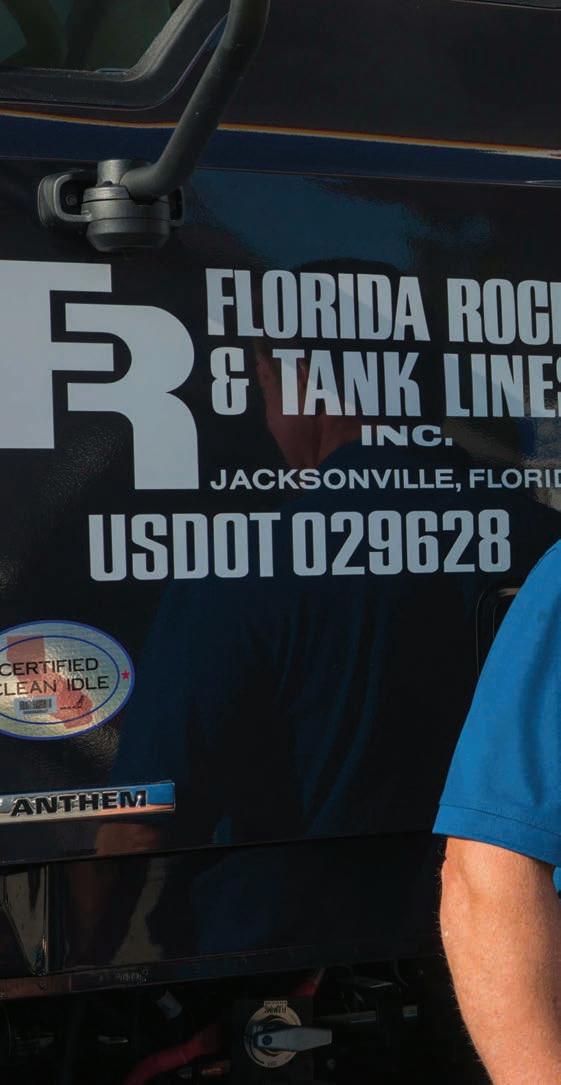
From left: Jim Anderson, vice president of safety and risk management; Dennis Rollins, company driver; and Robert Sandlin, president of Florida Rock & Tank Lines.






Florida Rock & Tank Lines by the numbers
• Located: Jacksonville, Florida • Transports: petroleum and other liquid and dry bulk commodities. • Annual revenue: $114 million • Locations: 19 terminals throughout the Southeast • Truck drivers: 530 company drivers, 40 drivers in training and 23 leased owner-operators • Equipment: 80% Mack® trucks, including Pinnacle™ and more than 70 Anthem® models.
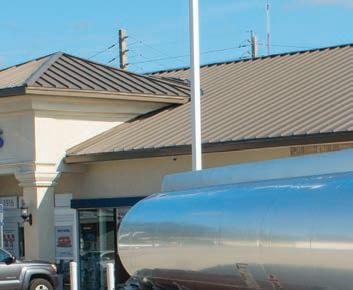
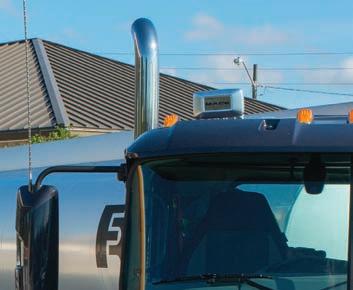
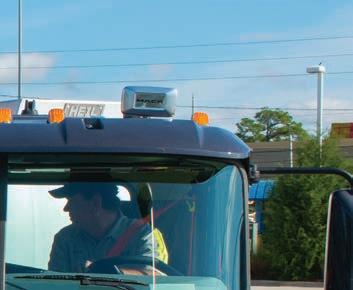
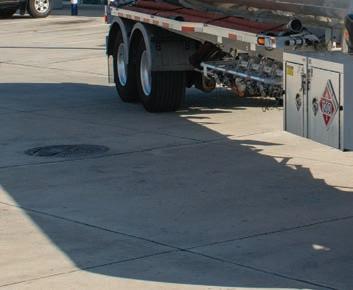
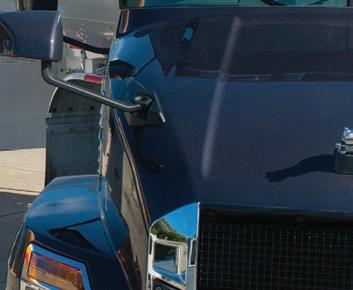
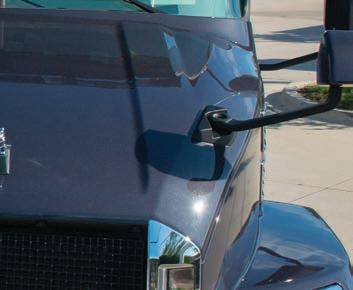
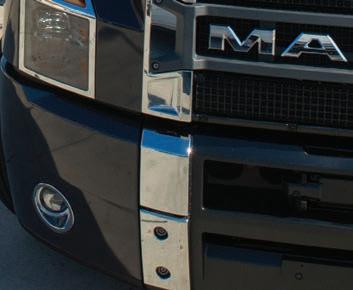
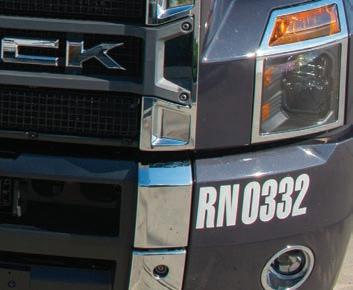
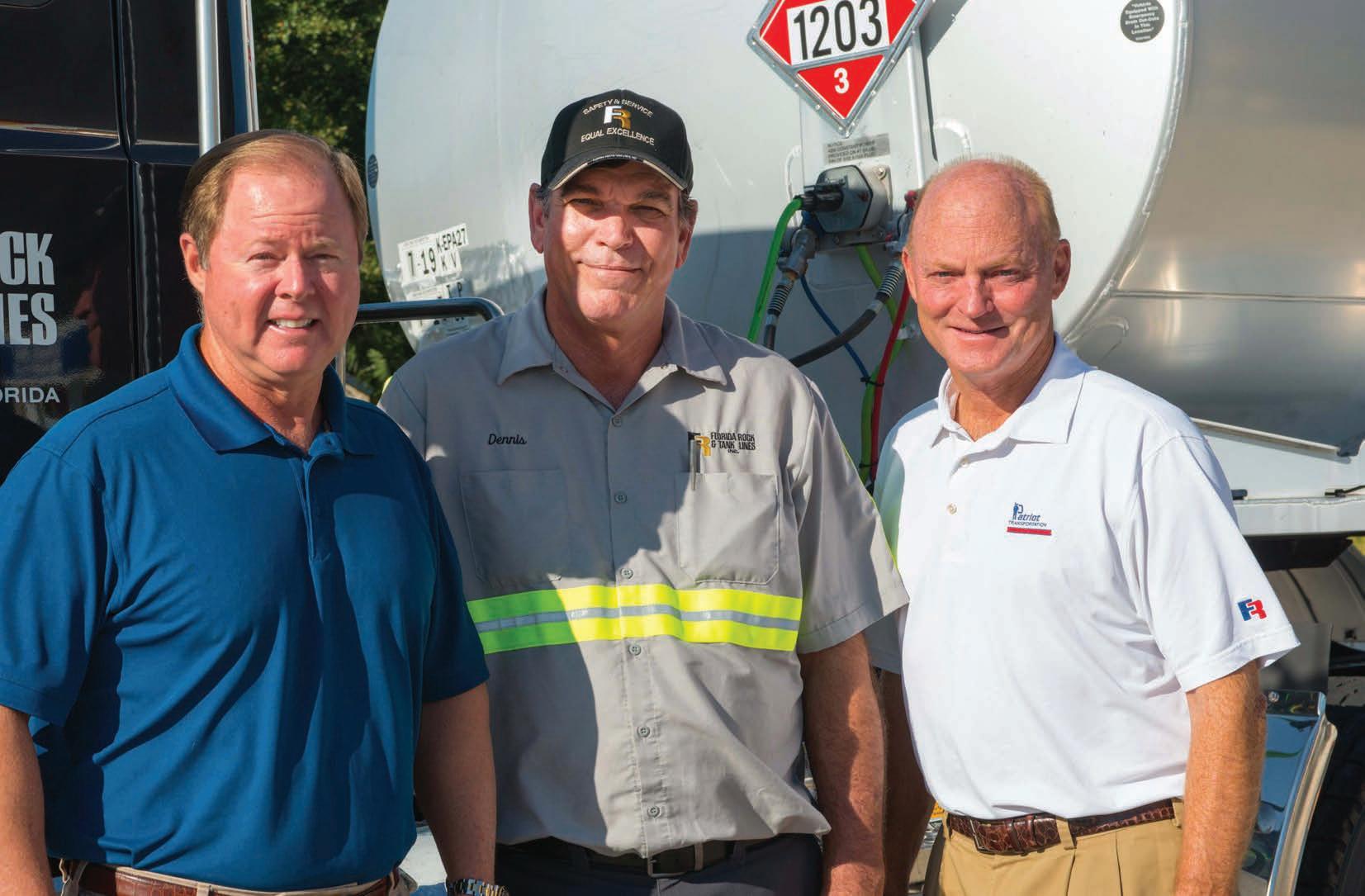
just to drive for them in one of the trucks. He got his CDL and, after getting the necessary experience, circled back and signed on with FRTL. “That’s a direct result of offering equipment drivers want to operate,” he says. And it also goes a long way toward retaining the top drivers they already have. Their top drivers get first dibs on the new trucks.
Dennis Rollins, a company driver with Florida Rock & Tank Lines for more than 18 years, says he’s spent his whole career driving tankers and is thrilled to be driving a new Anthem. Rollins, a former Florida Trucking Association driver of the year, says he’s impressed with the safety features, comfort and cool factor.
“The bells and whistles such as lane departure warnings and adaptive cruise control help me navigate city traffic with a minimum of stress,” he says. Because he delivers petroleum in crowded city locations, the Anthem’s tight turning radius is a game changer and he loves the visibility he gets from the mirrors. “When you are squeezing into a crowded gas station with people walking around and cars lined up at the pumps, you need as much visibility as possible. The Anthem’s fender and panoramic mirrors are situated so that I barely have a blind spot,” he says.
But it’s the look and design of the Anthem that makes him proud to be part of a company that offers drivers a brand like Mack. “I get drivers asking me about my truck and how they can hire on with a company like Florida Rock & Tank Lines so they can get one, too.”
The company’s focus on safety is another reason Anderson says they are pumped up about the safety features on the Anthem. “Going from drum brakes to disc brakes reduces stopping distance and gives you better braking.” There’s also an increase in uptime due to more efficient maintenance and service times on the brakes. They have operated the Bendix Wingman Fusion driver assistance system since 2017 and say the driver alerts and blind spotter technology has been helpful to drivers, especially in the urban settings and heavy traffic.
Sandlin says the key factors to buying equipment are first the relationship with the OEM, then the dealer and finally, the total cost of ownership. “I’m looking at the truck over a six- or seven-year time frame and take into account the cost and return on capital for our shareholders. We have a strong dealer relationship and have always found that Mack Trucks stands behind their products,” Sandlin says. He also is passionate about driver acceptance and says, “I ask drivers all the time how they like the ride, the torque, the safety features and the comfort of the truck.”
The relationship between Mack and Florida Rock & Tank Lines goes back for decades.
Sandlin says that the key to their continued success comes from offering premier customer service along with conservative fiscal practices including zero debt. “We focus on a good company culture and part of that is offering equipment that drivers are proud to operate.”
Dennis Rollins, company driver



Boutique refuse service


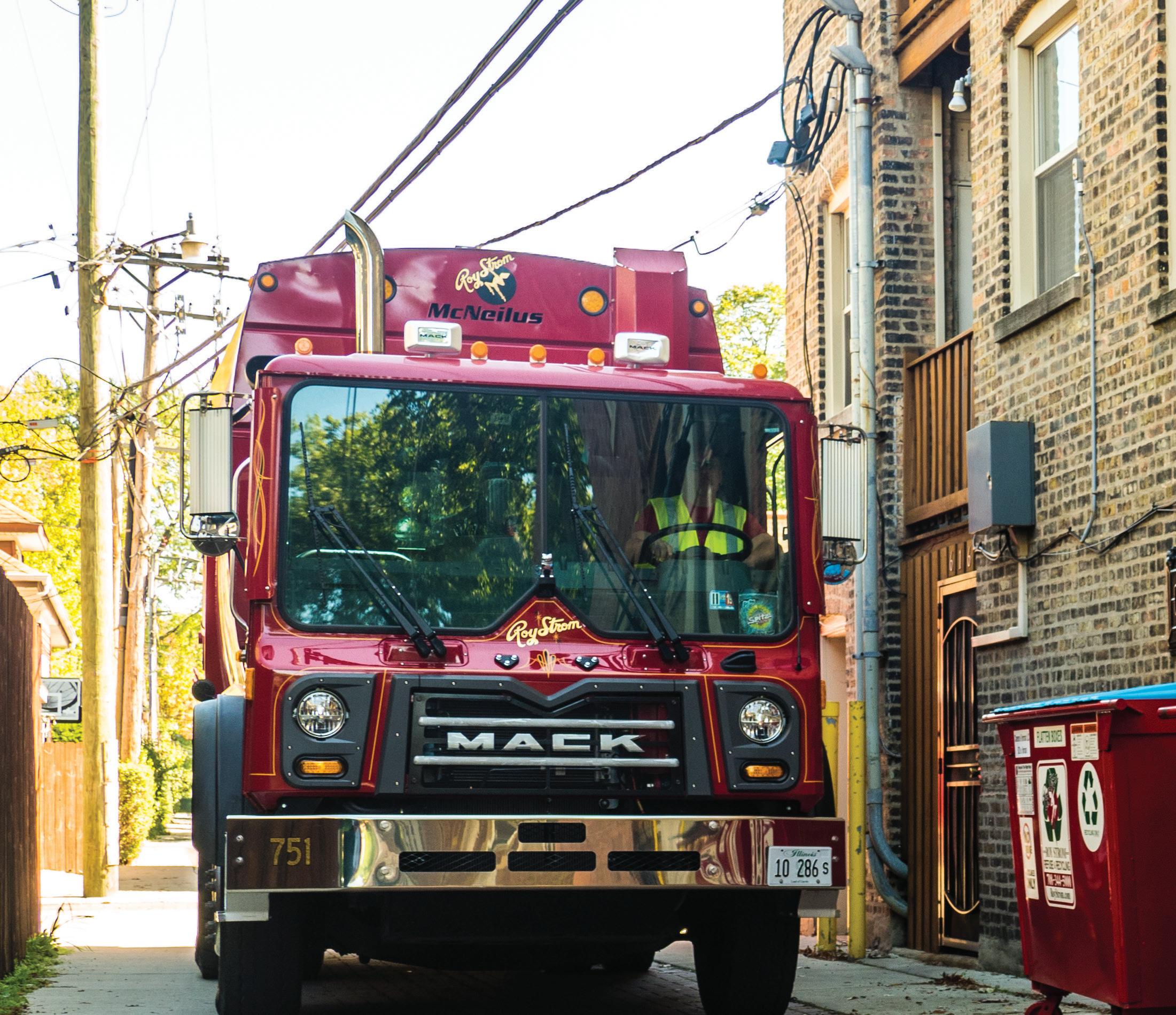

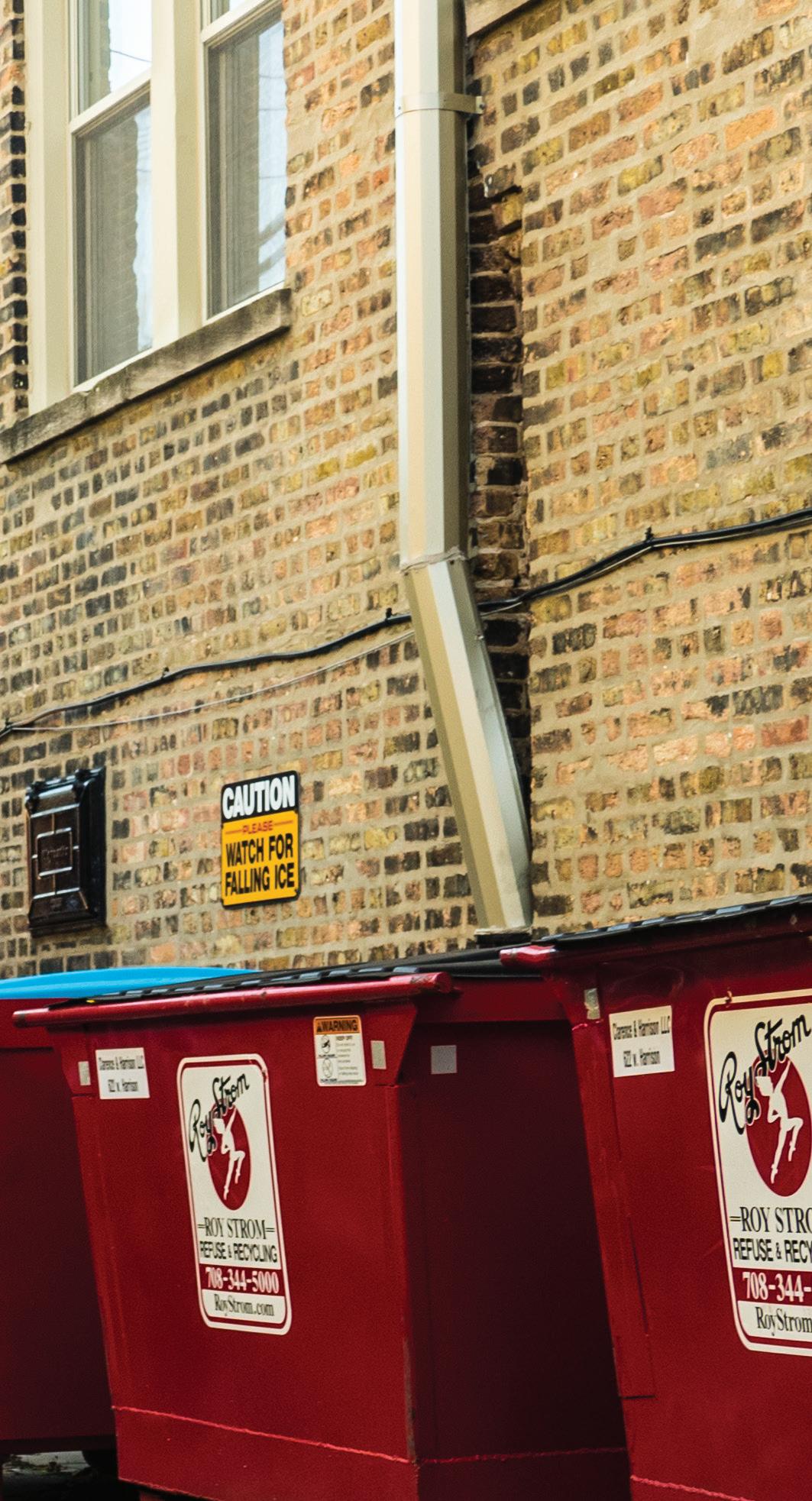
Roy Strom and Mack bring white glove service to the curb


The refuse industry is a hands-on affair, and every customer has different needs. For the Roy Strom Refuse Removal Service in suburban Chicago, adapting to customer and municipality demands has transformed the business into a “boutique” waste hauler, says company Vice President George Strom.
Founded 75 years ago in Maywood, Illinois, Roy Strom has maintained its focus on fi guring out how to care for each customer, whether a township, apartment complex or corporation. A family- owned business, George is in the fourth generation of Stroms to deal with those challenges. Mack Trucks has been part of their operation since the start.
Roy Strom currently has about 100 employees total in its refuse and construction operations, and operates 45 trucks, primarily Mack® Granite®, TerraPro® and LR models with rear loader and rolloff bodies. The company has purchased only Macks since 2008.
“With the more this market gets segmented, how do we adapt as a smaller business to maintain the quality of service that we’ve always held?” George says. “Our industry sometimes gets cast as the people causing the garbage. We’re just moving it for people. But how can we play more of a part in helping with this waste problem that exists in our country?”
Boutique businesses are always on the lookout for new ways to serve their niche. For Roy Strom, that means being willing to do new things for customers. “Everything is customized to the individual municipality,” George says. This includes e-waste, food and yard waste pickup, as well as composting of biowaste. Their fl eet plays a critical role in meeting these challenges. “Throughout our whole history, Mack’s been the truck that we’ve relied on,” George says. “The truck has been a key part to dealing with the tough environment that we are in every day, including the challenging Chicago weather and the harsh waste environment. We know when we purchase a Mack it is going to last 10 to 20 years. We’re not switching,” he says. “We’re dedicated to Mack products.”
Reliability is important for refuse trucks. The duty cycle is severe and the consequences of mechanical failure while on a route are very public. No one wants a garbage truck stranded in their neighborhood on a hot day, while the pressures of keeping to collection schedules is intense. George says the fl eet has only had one engine failure in its history, and that was the fl eet’s fault. “My dad always said, ‘Mack motors are bulletproof.’”
Roy Strom does almost all of its own maintenance and has counted on Mack technical education for their technicians to stay on top of the latest technology. George says being able to diagnose issues remotely is critical for the fl eet. And having a standardized fl eet of Mack trucks helps with maintenance and with driver training and operations, since the fl eet slip-seats drivers.
“We like Mack for many reasons, including the reliability, customer service and parts availability. Our dealership, M&K Truck Centers, has been an excellent partner. They tend to keep several trucks in stock so that when we need a truck we do not have to wait to get the vehicle we need. They have a huge parts inventory, so we can get almost any part delivered to us the same day,” he says.
In Chicago, the size of the trucks is a big issue because of the alleys where many refuse collections occur, so trucks have to be spec’d and purchased based on where they will operate. To address this, the fleet worked with a refuse body company to develop split-bodies — rear loaders with both trash and recycling compartments. These are “great” in alleys, George says, and inflict less wear and tear on infrastructure, since the fleet only requires one pass instead of two.
Roy Strom uses technology to improve service and operations. They have installed tablets in almost all the fleet’s vehicles for routing, tonnage, customer information and photos. Drivers can also take photos whenever a bin isn’t out for collection when customers complain their trash wasn’t picked up. This is useful considering the fleet picks up at as many as 20,000 residences each week.
And George has his eye on some other new technology: electric-powered trucks, particularly the Mack LR Electric refuse truck which will begin testing with two fleets in 2020.
“I know it was just announced, but this electric Mack truck, I couldn’t be more excited about that.” He called his Mack sales representative the day he saw the initial announcement and thinks it would be “ideal” for communities that still have backdoor service. “It would be super green for a community that wants to be more green.”
That forward-thinking attitude is central to Roy Strom’s ability to grow and thrive for three-quarters of a century in a very competitive market.
“Attention to detail has been really critical to our success,” he says, an attitude that extends to equipment. “If a customer sees that you’re taking care of your stuff, they think you’re more likely to take care of them.” The fleet washes its trucks once a week, but some drivers take it a step or two further.
When a new truck came in a few years ago, its driver decided he wanted to wash it every night on his own time, George says. “The next new truck, that driver also did the same thing. Now, there’s a group of drivers who rinse off their trucks every night on their own time. Drivers tell me ‘I just take pride in my vehicle. I take pride in the way it looks.’
“Our sense of pride — my family’s sense of pride — in this company is why we continue to operate.”
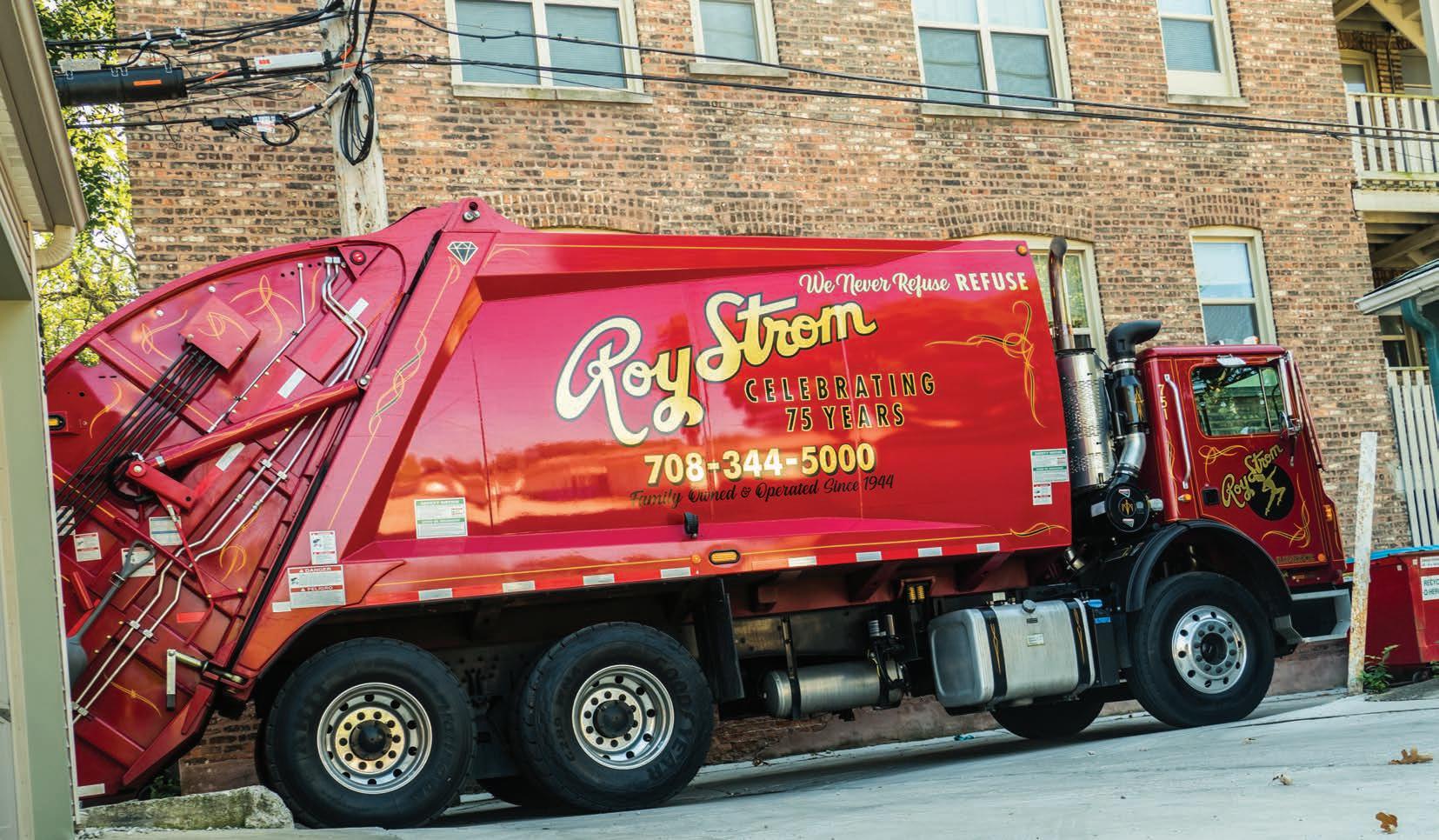
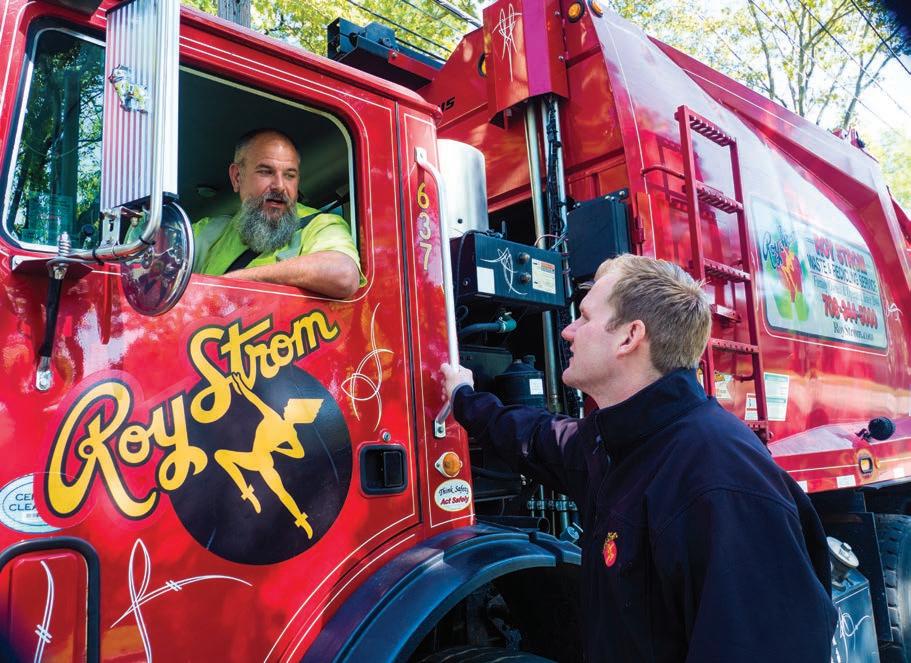
Cold start
McMahon Transport relies on Mack for deliveries in sub-zero weather
Fuel hauler McMahon Transport has seen significant changes in the past 30 years. For one thing, around the same time founder James McMahon switched from driving a milk delivery truck to bulk gasoline delivery, the major oil companies started divesting their retail networks, which opened up the fuel hauling business to competition such as McMahon. He founded the fleet in 1989. “A lot of opportunity opened up, and we had a good reputation. Many of the gas stations utilized us, and do to this day,” James says. The Lockport, Illinois-based fleet is now the second-largest gas hauler in the state, primarily operating in Chicago and the surrounding region. New technology also had an impact. The company pioneered automation in their industry, developing in-house software to automate much of the office management and logistics for their fuel delivery network. “Without the computer program, we could not run our company,” James says. “You can’t deliver to over 700 locations with guys making phone calls.” One thing that hasn’t changed since the company’s early days is their reliance on Mack® trucks. McMahon Transport bought its first Mack in 1993. “We found that the Macks were just sturdier,” says John McMahon, James’ son and now owner of the company. “It’s great for slip-seating trucks, which is all we do. You can beat the hell out of that thing, and it just keeps going. We’ve stayed loyal ever since.” “McMahon Transport has been a loyal partner with M&K Truck Centers for years. In addition to selling Mack trucks to McMahon, M&K supports them with daily parts deliveries, major repairs, maintenance training and cost control with the Bulldog Protection Plan,” says Dave Wilkey, sales manager, M&K Truck Centers. The fleet now has 51 tractors, including new Mack Anthem® models, and delivers about 300 loads daily.
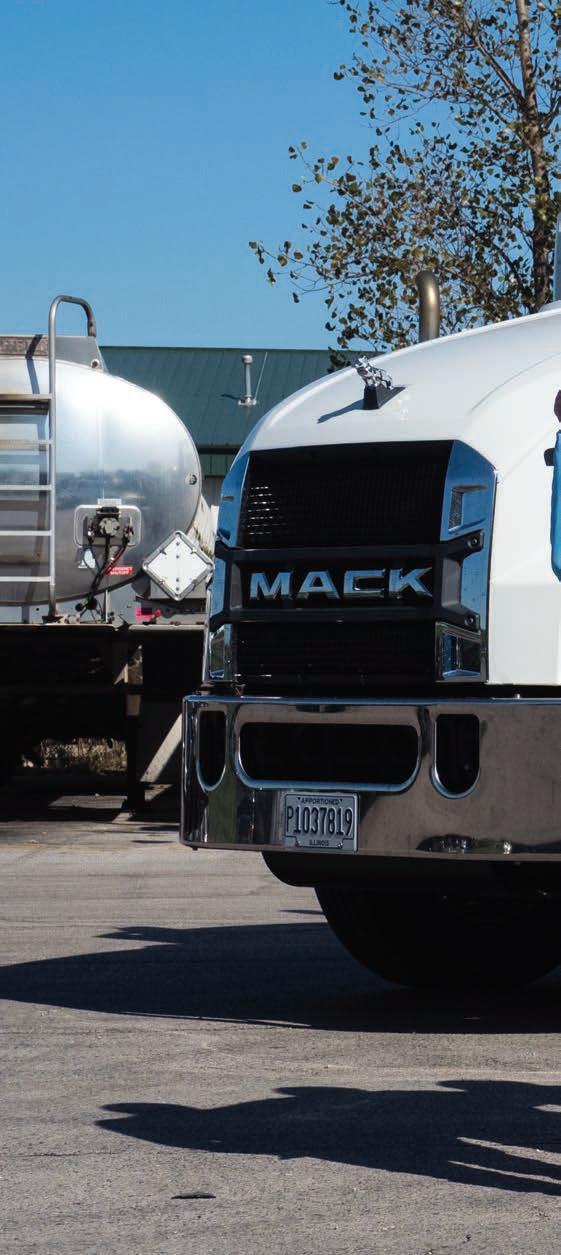
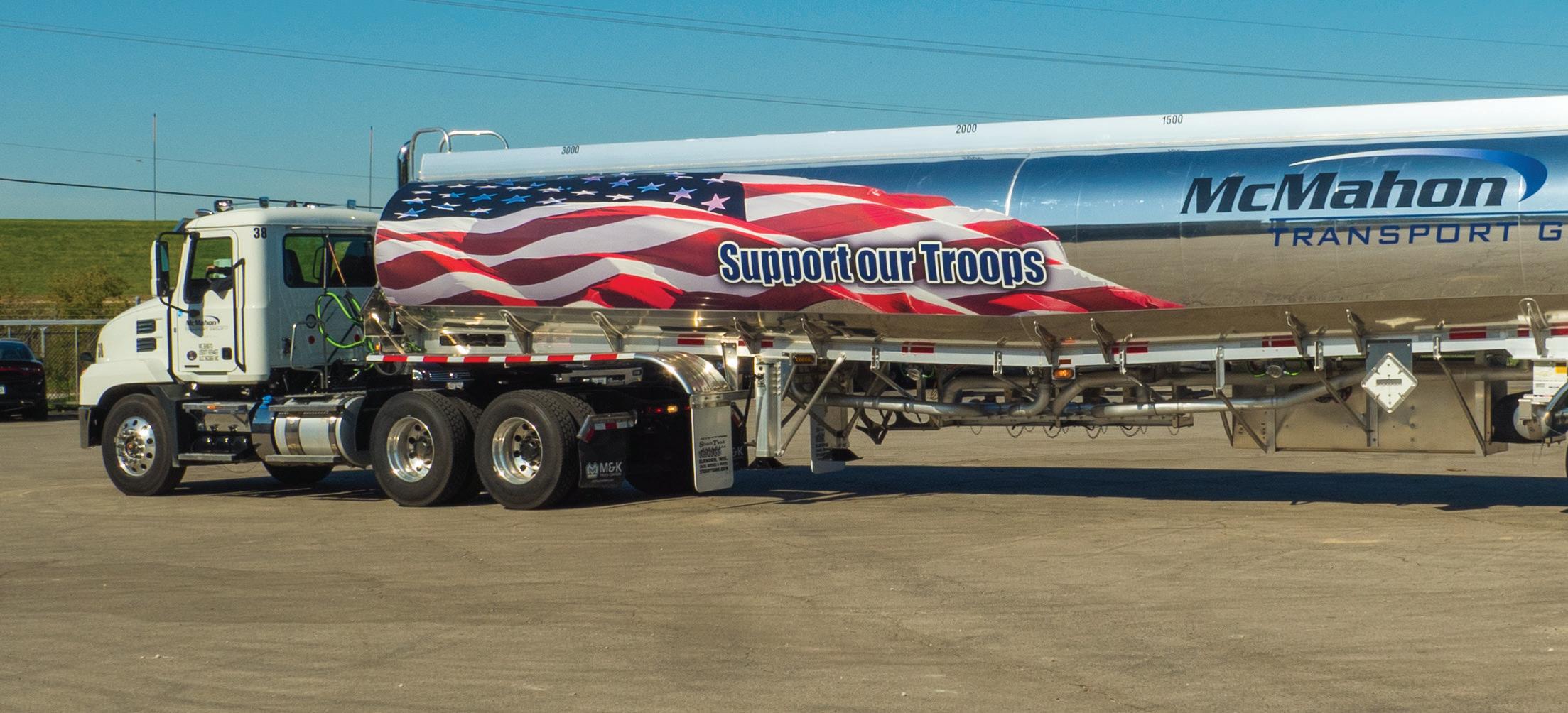
Chicagoland remains a tough place to truck, says Tom DiNaso, McMahon’s chief financial officer. “The traffic’s still there, the long lines are still there, the snow is still there — nothing has really changed in that atmosphere. But
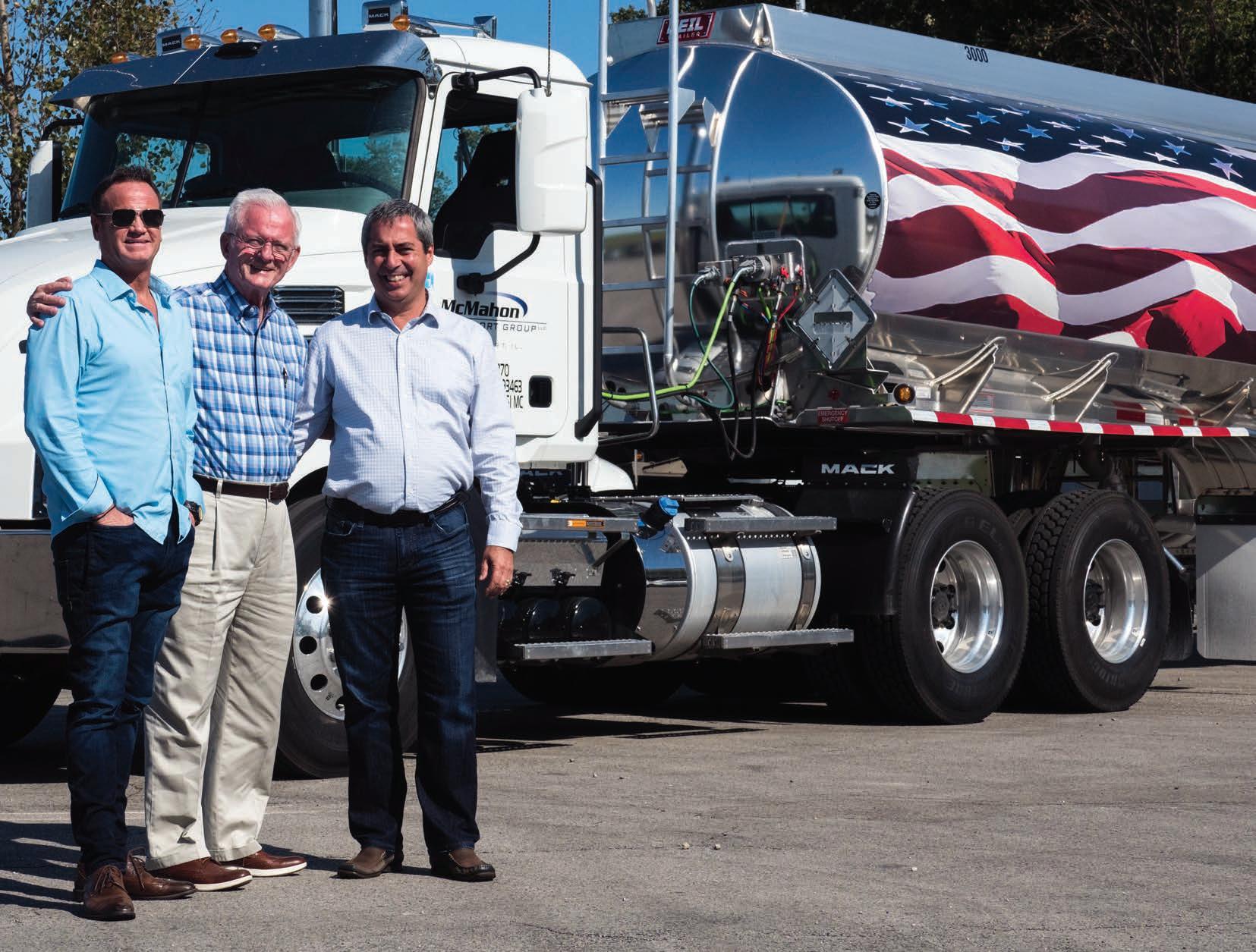
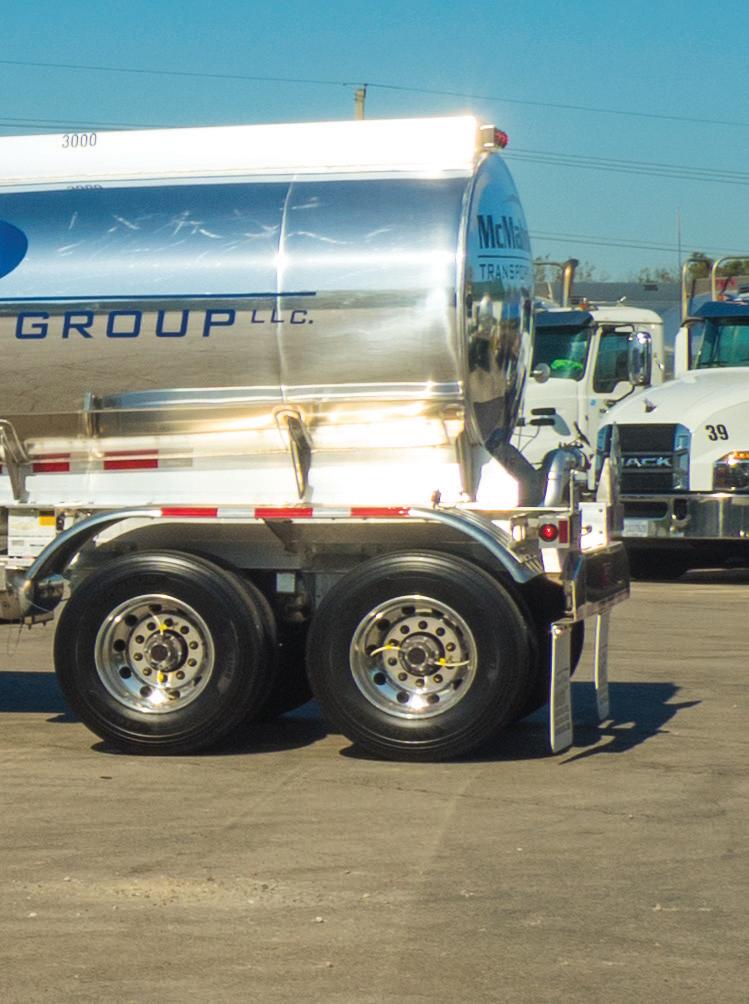
McMahon Transport’s executive team: From left, John McMahon, owner and CEO; James McMahon, founder and president; Tom DiNaso, chief financial officer.
the trucks are better,” DiNaso says.
One of the improvements is Mack’s mDRIVE™ automated manual transmission, he says. The company first started testing AMTs in 2014.
“We love it, drivers love it — there’s just no question about it. The stress relief on the drivers was incredible. Can you imagine, you’re in bumper-to-bumper traffic, shifting, clutching? It takes a lot out of you. Also, the automatics allowed us to hire drivers who don’t know how to drive a stick, so the driver pool got better,” DiNaso says.
As with most bulk haulers, a lower tare weight means more payload, which means more revenue. So McMahon is very pleased with the performance of the lightweight 11-liter Mack MP®7 engine. Their 9,500gallon capacity tankers normally weigh out at 8,500 gallons. With four compartments, they can carry multiple fuel grades, including gas, diesel, kerosene, racing fuel and ethanol.
Of course, being in the Chicago-Great Lakes region, winter has an impact on fuel usage and customer demand. Tom DiNaso says more fuel is consumed when the temperature drops to 10 degrees Fahrenheit or lower. “People start their cars an extra half hour early, and you’d be surprised how that chain reaction just adds up with fuel.” The area experienced record cold — minus 20 degrees F for three straight days — last winter. School was canceled, businesses were closed, everyone hunkered down and tried to think of spring. Except for McMahon Transport and its fleet of Mack trucks. “We didn’t shut down once,” John says. Nor were there any breakdowns. The fleet used fuel additives and cold-resistant oil for the trucks and provided hand warmers and pizza for the drivers. “No chains. Put shovels on the trucks, plug them in and keep them running around the clock.”
They even were able to make special fuel deliveries for companies whose normal deliveries by other companies were disrupted. “We gained two or three customers because of that, because we did them a favor during that time,” John noted.
McMahon Transport has been successful for decades and sees further growth in its market, with little interest in expanding to other areas. Or as John says, “I’m a strong believer of being the best at one thing.” His father, James, agrees. “We’ve done extremely well in fulfilling the needs of our customers. My original contract was a handshake, and it’s still going.”


